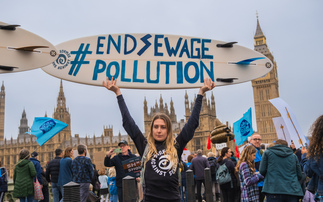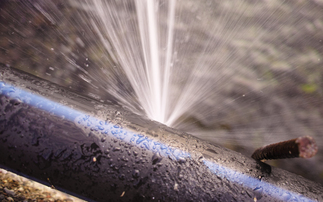From tumbling renewables records to political dog-fights, James Murray looks at the trends that will define the green economy over the next 12 months
5. UK's carbon capture uncertainty to finally be brought to an end
It has taken an entire parliament and some, but this year should finally see the government award its long-promised £1bn funding competition to one of two proposed carbon capture and storage (CCS) projects.
Leaving aside the understandable frustrations over the delays the sector has faced, a decision promises to provide a major boost to the nascent sector. Add in the prospect of some eventual progress on EDF's planned new nuclear plant Hinkley Point and the UK may finally take a step towards the clean energy triumvirate of renewables, nuclear, and CCS that the government has long insisted will deliver on our decarbonisation targets.
6. A fair wind for offshore wind energy
Renewables records will be set in 2015, but the sector as a whole will face a tumultuous 12 months with the election likely to play a major role in determining the medium-term future for the onshore wind, solar, and biogas sectors. However, there is one part of the industry that is likely to deliver some encouraging progress this year: offshore wind.
All three of the main parties are backing the sector and with Siemens moving forward with its plans for a Hull factory and Vestas manufacturing blades on the Isle of Wight a domestic supply chain is fast taking shape. Moreover, the emergence of giant 6MW to 8MW turbines and exciting trials for floating turbines hold out the promise of falling costs.
The sector continues to face significant challenges, not least concerns the government's Levy Control Framework funding pot only has enough cash in it for a handful of the projects currently in the pipeline. However, the award of early contracts through the government Final Investment Decision mechanism means a host of new projects should get the green light this year.
7. More big brands to embrace climate action
Every year sees the ranks of businesses seriously committed to climate action and the green economy swell, and there is no reason to think 2015 will be any different.
Unilever, IKEA, Nestlé, Marks & Spencer, IBM, Siemens, GE, Nissan, and the myriad of other blue-chip firms pursuing ambitious decarbonisation or clean tech policies will be joined by others.
One of the most intriguing aspects of last year saw E.ON confirm it was splitting into a high and low carbon business - will other utilities follow suit?
Similarly, will more firms emulate Unilever and tire of the green policy blocking tactics used by business groups such as BusinessEurope?
The remarkable way in which the green consumer market has continued to prosper throughout the economic downturn, huge public support for clean energy, growing awareness of climate risks, and the simple desire of CEOs to leave a positive legacy means the likely answer to both questions is, yes.










